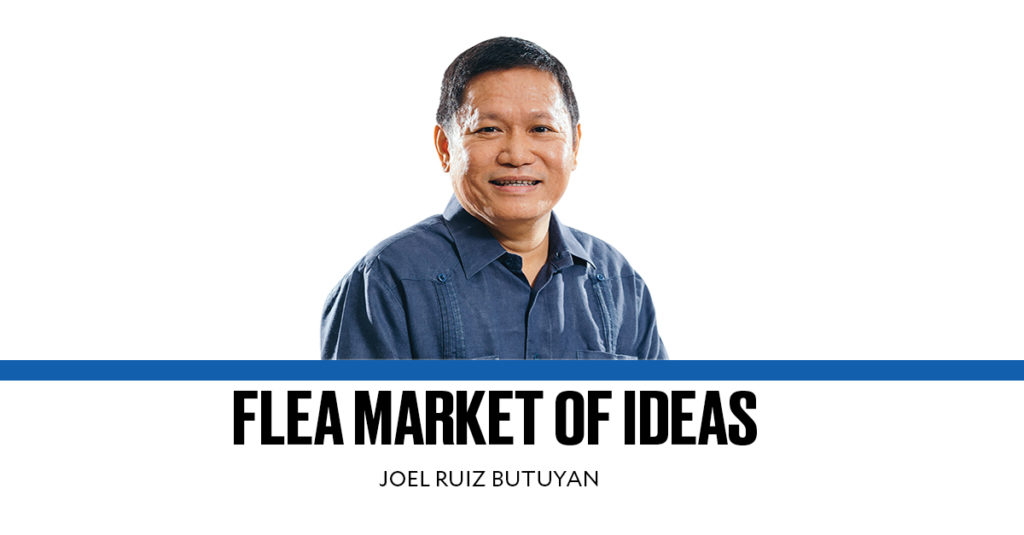It’s a lamentation expressed with increasing regularity these days. It appeared again on my social media network recently—the faces of senators of the past renowned for their brilliance, juxtaposed with pictures of senators of the present who are regularly ridiculed.
The senators of the past include Claro M. Recto, Jovito Salonga, Jose Diokno, Lorenzo Tañada, and Raul Manglapus. The senators of the present include Bato dela Rosa, Manny Pacquiao, Bong Go, Lito Lapid, and Bong Revilla. If the latest survey results correctly foretell the election outcome for next year, Raffy Tulfo and Willie Revillame will join the ranks of pilloried senators.
According to people’s reminiscences of politics before the Marcos dictatorship began in 1972, politicians of those years captivated the masses with their eloquent speeches, and crowds trooped to election rallies to be enthralled by the oratorical brilliance of their leaders. Our parents and grandparents chose their leaders based on superior intelligence, sterling track record, impressive academic credentials, and unblemished reputation.
In today’s politics, however, lackluster intelligence, lack of track record, absence of academic credentials, and a disreputable past are no longer hindrances to a political career. In fact, we have gotten to the point where the absence of those credentials so valued by our forefathers is instead considered a positive qualification, because it is viewed as proof that a candidate comes from the masses.
One gets the feeling that if the revered politicians of our past (Recto, Diokno, and Tañada, for example) were reborn in our era and made to run in our elections, they would not stand a chance against the likes of Pacquiao, Revilla, and Lapid.
In fact, our current politicians who possess old-fashioned credentials are insecure about their substantive qualifications, which is why we find them singing, dancing, and doing comic skits during election rallies. A reborn Recto, Diokno, or Tañada would need to render a TikTok dance routine, sing an April Boy Regino song, do an Eat Bulaga slapstick comedy sketch, and hire Vice Ganda as endorser in order to get a fighting chance at becoming a senator again.
What has caused this monumental change in our preference for leaders? We hear of the continual decline in the quality of our education, causing the aggravation of illiteracy in our midst. We’re told that the increasing ranks of our poor have bred a multitude of voters forced to parlay their votes for a day’s meal. We hear that voters have grown disillusioned with credentialed leaders because of their unfulfilled promises.
All these explanations constitute the cocktail of reasons that explains why we are in a sordid state as a country. But one explanation that remains unrecognized is the crucial difference between the psyche of our forefathers and that of our current generation. Our forefathers looked up to their leaders and placed them on pedestals, wanting them to be the epitomes of intellect, virtue, and success because they themselves aspired to become such models in their fields of profession or vocation. In their era, our forefathers could reach their dreams with intellect and hard work. Proof? Many of our parents and grandparents who went on to become successful professionals and businessmen were the children of farmers and humble civil servants.
For the current generation, however, it has become extraordinarily difficult for children of poor families to climb out of poverty even if they’re infused with intellect and motivated by hard work. The road to economic mobility has become severely constricted, rendering our masses hapless and hopeless. How has this affected their view of our leaders? They no longer look for pedestaled leaders who embody dreams that they know are beyond their reach. They long for leaders who are shorn of pedestals, who demonstrate affinity with them, who commiserate with them on the depravity and violence around them, and who minister to the survival needs of the masses.
But are the Pacquiaos, Revillas, and Lapids genuinely working to uplift the lives of the poor? Let’s ardently hope our people will not take long to realize the answer.
Comments to fleamarketofideas@gmail.com
